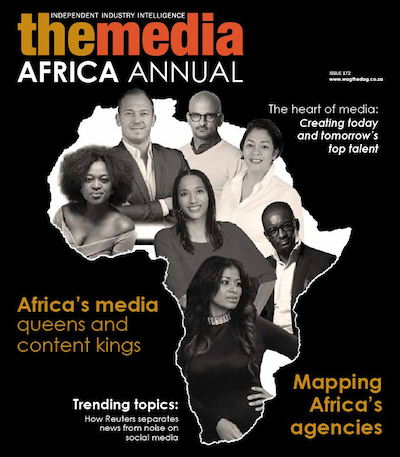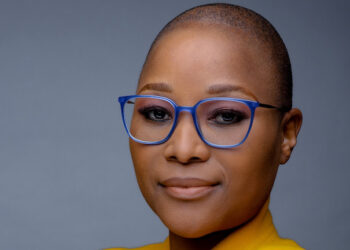It’s a tricky business managing and nurturing business relationships across continents and cultures, but it’s something agencies have to do if they’re to successfully tap into Africa’s vast potential.
That Africa is rising is in no doubt. Where it is rising depends on a whole host of factors. Knowing just what those are could be the difference between success and failure for agencies and brands building a presence on the continent.
“Africa is a very broad, diverse continent and when you have worked in it for as long as we have, you will understand and know that you can never approach it as one homogenous region or apply what works in one market to another,” says advertising placement agency Marnox Media’s Sipho Fakela. South African-based and global brands should not attempt to approach the continent without a concise and specific plan or an understanding of the differences between each market, population group or language, or it can lead to problems, he adds.
Carat strategy director, Graham Deneys, says a great example of this would be competitions and promotions. “Although very popular promotions are often met with substantial scepticism from consumers. It is very important to ensure the names and images of competition winners are displayed prominently and continuously during a promotion. Press is usually the best medium for this. In addition, smaller real-time prizes like airtime tend to gain more traction than singular large prizes,” he says.
The influx of global agencies into Africa, either buying up existing shops or finding affiliates to partner with, means teams managing relationships with head offices based in the US, UK, Europe, Japan or wherever, as well as with people on the ground, have any number of issues to navigate. Same with brands; gaining a foothold in Africa could be hugely profitable, but getting to that point means avoiding the pitfalls.
The trust factor
 OMG Africa’s Cameron Maclear (left) says relative to the rest of the world, Africa’s population is expected to grow exponentially in the next 50 years, which will see the share of the working population peak and a growing middle class, who will drive increased consumption across all sectors. OMG Africa has significant holdings across Africa, and experience to go with the expansion.
OMG Africa’s Cameron Maclear (left) says relative to the rest of the world, Africa’s population is expected to grow exponentially in the next 50 years, which will see the share of the working population peak and a growing middle class, who will drive increased consumption across all sectors. OMG Africa has significant holdings across Africa, and experience to go with the expansion.
“It is important not to reinvent the wheel. Prior to global agencies entering the fray, the larger economies on the continent already had robust media agency environments. Identifying best in class agencies in the respective countries and partnering with them to utilise their knowledge and on the ground experience is key to establishing a successful agency network,” Maclear advises. “The extension of ownership facilitates more control over the quality of products and services offered and a greater integration of global expertise into local markets. Trust and relationships are built over time and consistency is key to ensuring partnerships grow from strength to strength.”
Deneys reckons some challenges are relatively simple to address and others, quite complex. “You need to understand the culture and the regulatory framework within each and the best way to do this is have key partner agencies in each market you operate in,” he says. “From a strategic point of view, one of the key challenges across the continent for a global brand is always going to be consistency. It is a multi-phase job that combines key growth drivers and positioning attributes with a locally distilled and adjusted approach for each market.”
Like Fakela and Maclear, Deneys says it’s important to work with local teams to get a sense of what works and what doesn’t. “While we will pull together a robust Pan-African media approach here in our central SSA hub, our local market agencies will always interpret and adjust our approach to ensure complete relevance and resonance in each individual market,” he says.
On the ground
 Building strong relationships requires feet on the ground, not remote networking from offices in Johannesburg or Cape Town. Fakela (left) says nurturing relationships with media owners is vital, as is making sure you have “as many points of contact as possible as this enables you to fully deliver efficiently to your clients when it matters the most. To be able to get these relationships to this level, you have to travel to each of the markets you are actively doing business in so that you can get to know the people who actually handle the day-to-day work”.
Building strong relationships requires feet on the ground, not remote networking from offices in Johannesburg or Cape Town. Fakela (left) says nurturing relationships with media owners is vital, as is making sure you have “as many points of contact as possible as this enables you to fully deliver efficiently to your clients when it matters the most. To be able to get these relationships to this level, you have to travel to each of the markets you are actively doing business in so that you can get to know the people who actually handle the day-to-day work”.
At the same time, as Maclear says, new technology, access to information and innovation are proving to be useful tools in bridging some of the traditional barriers to doing business in Africa.
“A number of international, regional and local brands have well established businesses on the continent. There has been significant investment into local production and manufacturing facilities as well as a skilled work force which is based in the respective countries,” he says.
On the subject of a skilled work force, Maclear says, “The African Diaspora are starting to return from studies abroad and are bringing with them an entrepreneurial skill set and innovative thinking which is also fuelling economic growth as is investment in infrastructure as well as access to education.
“The likes of Cote’ D Ivoire, Cameroon, Kenya and Ethiopia are all forecasting real GDP growth of above 6% in 2017 and beyond. Between 2020 and 2050, Africa is expected to be the world’s largest urbanising region giving rise to megacities which are forecast to contribute nearly 40% of GDP growth. By 2030, 18 African cities will have a combined spending power of $1.3 trillion.”
It’s no wonder brands are eyeing the continent. So how do they stand out from the clutter and build loyalty?
Creating utility through media choices
 “A key factor in all of our planning from an opportunities and challenges point of view is utility,” says Deneys (left). “We work to ensure that we create utility through our media choices, creating something that overcomes a consumer’s challenge, whether it’s assisting to minimise time spent in traffic or a simple way to enhance an everyday experience.
“A key factor in all of our planning from an opportunities and challenges point of view is utility,” says Deneys (left). “We work to ensure that we create utility through our media choices, creating something that overcomes a consumer’s challenge, whether it’s assisting to minimise time spent in traffic or a simple way to enhance an everyday experience.
“An example of this could be seen from our work on Guinness in Cameroon, where our local team reimagined a standard bus shelter and turned it into an awesome football goal post. This initiative created talkability through its utility. This approach creates a sense of authenticity and develops relevance with consumers,” he explains.
And he adds: “The same thinking can be applied to distribution and pricing. If media can assist with this you will be on a good wicket. Perhaps a nice example of this would be in informal markets where it can be difficult to serve an ice cold drink at the right time in the right place. In this situation the media can become the distribution.”
Fakela applies similar thinking to the media owners he works with. “You’ve got to understand the working environment, systems and processes used to put into perspective what the media owner can effectively deliver on and where there are gaps that you can fill as a value adding partner to their business,” he says.
“We have ventured into numerous avenues to try and fill these gaps and assist media owners where we can in the fields of sales, journalism, media monitoring and many other aspects that have contributed positively to their revenues. This not only helps media owners improve on their service delivery, but it also improves the standard of the industry as a whole and uplifts the quality of media in each of the markets which leads to brands feeling more comfortable to increase their budgets and invest more into Africa.”
Stimulating demand
Fakela says global brands accustomed to stimulating demand through Western-style advertising plans “have to rethink their go-to-market strategies for the African market to fully understand the consumer they intend to target”. Research, then, is key. “The likes of GeoPoll will surely change the landscape in terms of audience research. Being able to measure exactly where the audiences are reveals a lot of useful insights in terms of demographics and socio economic indicators for almost all of Africa’s communities,” he says.
Deneys reckons research has always been challenging in Africa. “Carat is an audience first agency that is rooted in data and insight but it’s often operating in markets where there might not always be robust and reliable data available,” he says. “It is for this reason that we have pioneered our own proprietary research called CCS (Consumer Connection System) on the continent. This quantitative research allows us to plan and form insights from an audited and reliable source that is then used to complement data sources available in each market.”
Ah, data… Michael Bloomberg is quoted as saying the “analysis of, access to, and distribution of public data will lead to stronger governments, better reporting, healthier businesses, and faster pathways to social and economic progress”.
Says Maclear, “Data in the 21st Century is like oil in the 18th Century,: an immensely, untapped valuable asset. Like oil, for those who see data’s fundamental value and learn to extract and use it there will be huge rewards. We’re in a digital economy where data is more valuable than ever. It’s the key to the smooth functioning of everything from the government to local companies. Without it, progress would halt. Sharing of data about products and customers provides opportunities to up sell, cross sell, improve customer service and retention rates. By using internal data in combination with external data, there is a huge opportunity for every company in the world to create new products and services across lines of business.”
This story was first published in The Media Africa Annual. To read the magazine, click on the cover.















